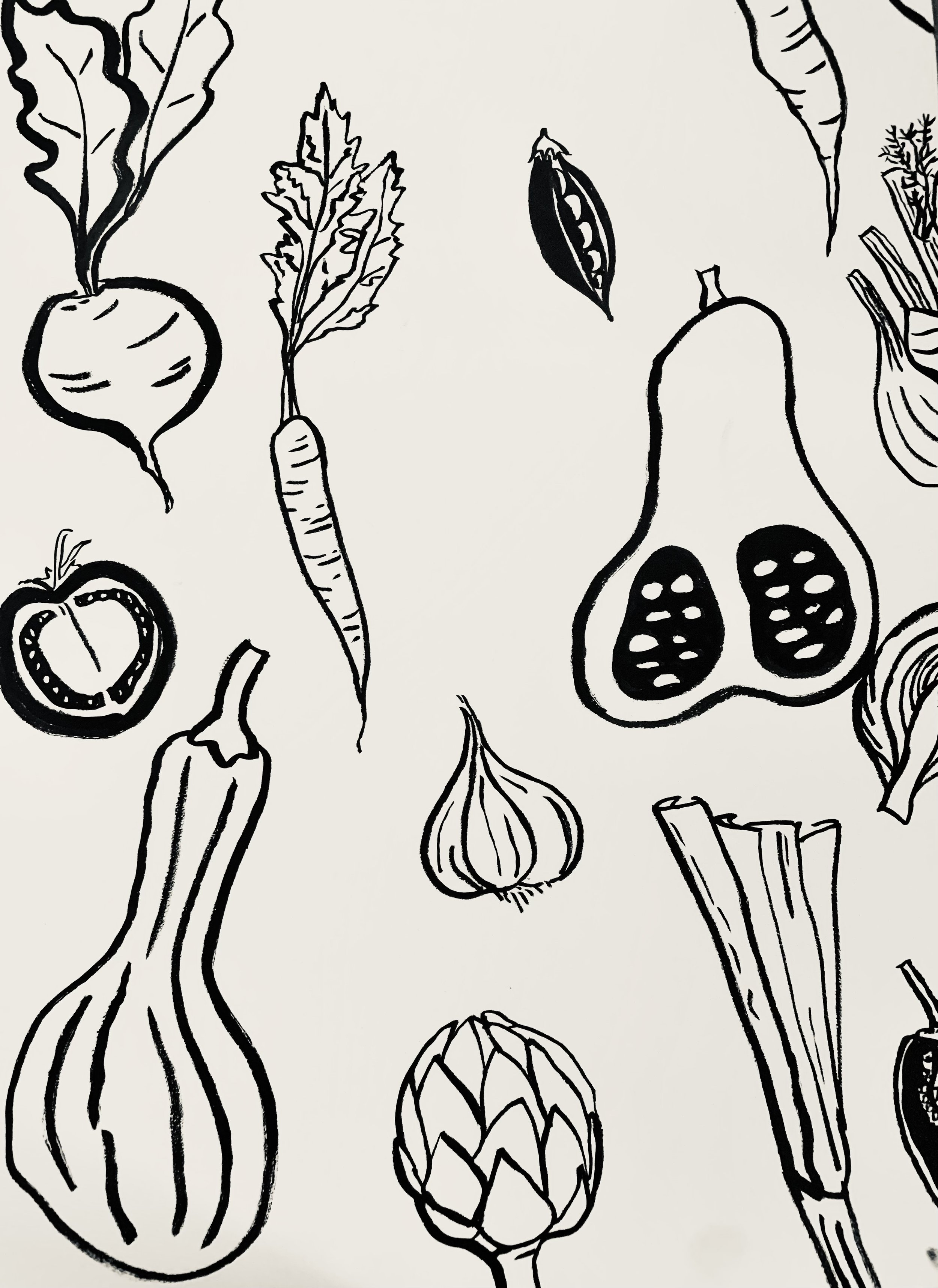
No Dig Gardening

The No Dig Method is exactly what it sounds like; we don’t dig the soil. Having learnt from the No Dig expert Charles Dowding, I know how important this method is. Not only does it produce quality vegetables its also values our environment.
Repairing soil is key to growing healthy plants. A fully functioning soil food web of microbes and fungal networks makes for sweeter tasting and more nutritious food, and its great for trapping carbon. The No Dig method never disturbs the soil by always mulching on top, never digging it in or digging up roots. We aim to aid soil structure by allowing the ecosystem below to do its work without being destroyed by rotavating or digging. Farming by hand without big machinery means the soil won’t become compacted and it also allows us to grow a huge variety of different vegetables, herbs and flowers side by side. Growing perennials with annuals and mixing varieties means a vast array of root exudates are secreted into the soil, which creates diversity below ground. Above ground it is not only beautiful but encourages our friends the pollinators to visit.
Photo of Charles’ Garden, Homeacres
www.charlesdowding.co.uk
Soil wishes to be covered at all times; if a patch is left bare then ‘weed’ seeds will germinate and begin photosynthesising. The sugars produced by photosynthesis feed those soil microbes below and the process of trapping carbon begins. No dig keeps soil covered at all times with a layer of compost mulch on the beds and woodchip on the paths. By keeping a succession of plants in the ground year round and using cover crops where needed we are helping to give back to that soil.
Unfortunately current mass production food systems are detrimental to the environment. For too long humans have taken from the planet’s resources without giving enough back. At Long Lane Farm we are not organically certified but we never use synthetic fertilisers, pesticides, fungicides or herbicides. Healthy soil produces plants that are resistant to disease and unwanted insects. We want to create habitat for pollinators throughout our market garden because we know just how important they are for our ecosystem to thrive.
Compost and water
We will be creating as much homemade compost as space allows, taking raw vegetable and fruit food waste from local households and using grass clippings and leaves from the plants once harvested. This along with coffee grounds from local cafes, woodchip from local tree surgeons and manure from nearby stables will create our highly valued compost mulch.
Water is another valuable resource so we will harvest as much rainwater as possible to use on our beds. The No dig method allows the fungal network to function properly so along well as sequestering nutrients, depositing serious amounts of carbon, it also accesses moisture for the plants from deep down - an essential part of plant drought resistance.
We will be growing vegetable varieties that are known for great flavour. When harvesting for CSA members, we always prioritise taste, freshness, and nutrition. We want you and your family to eat well.



